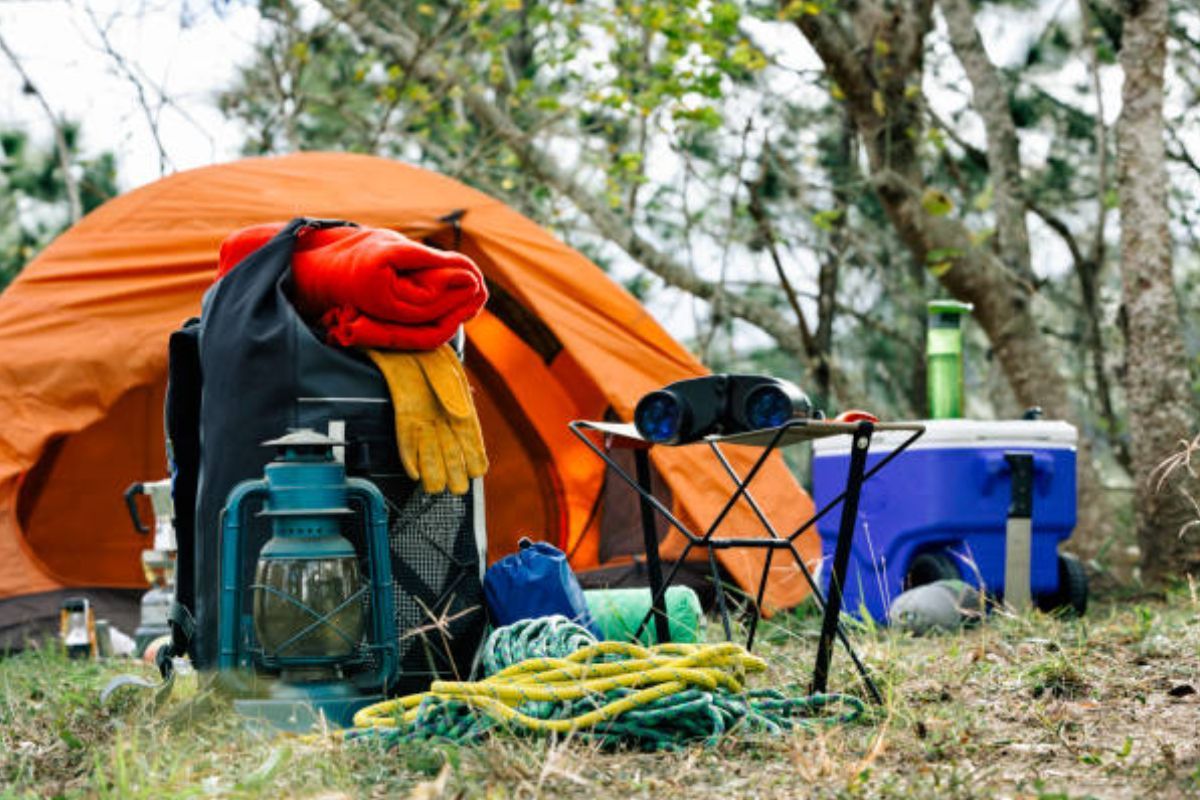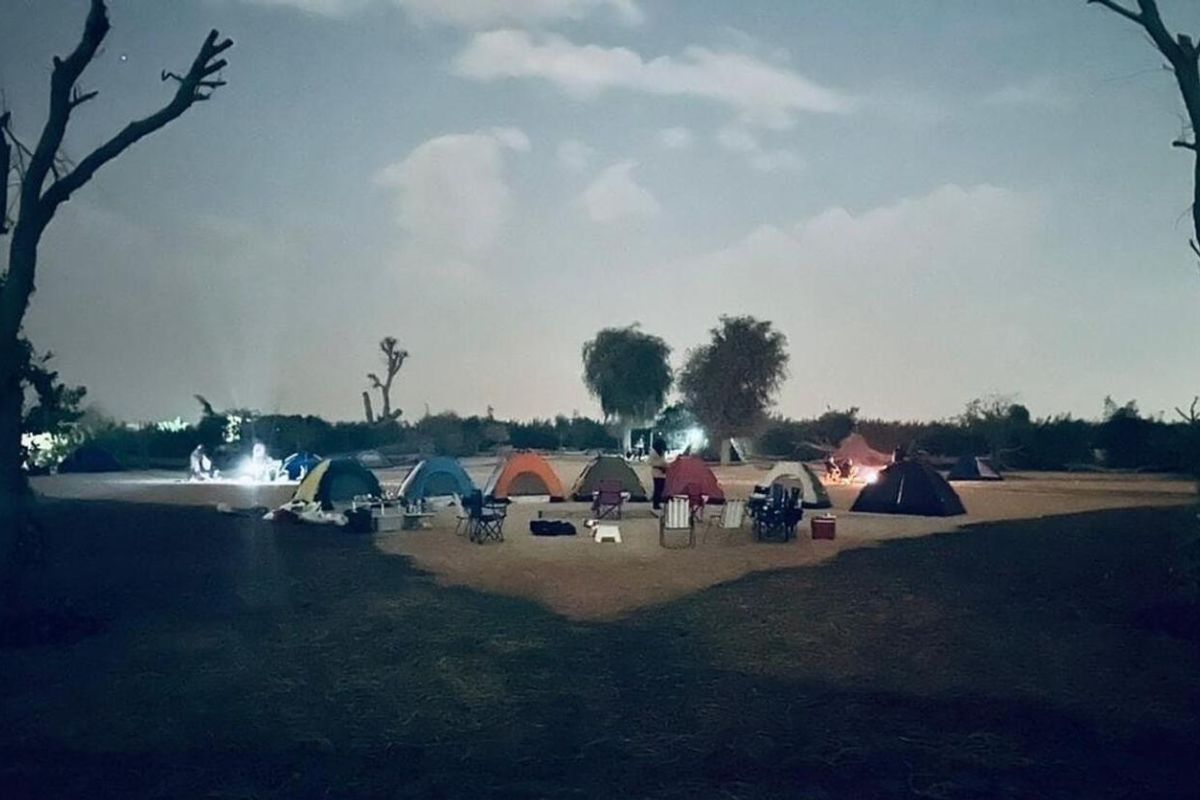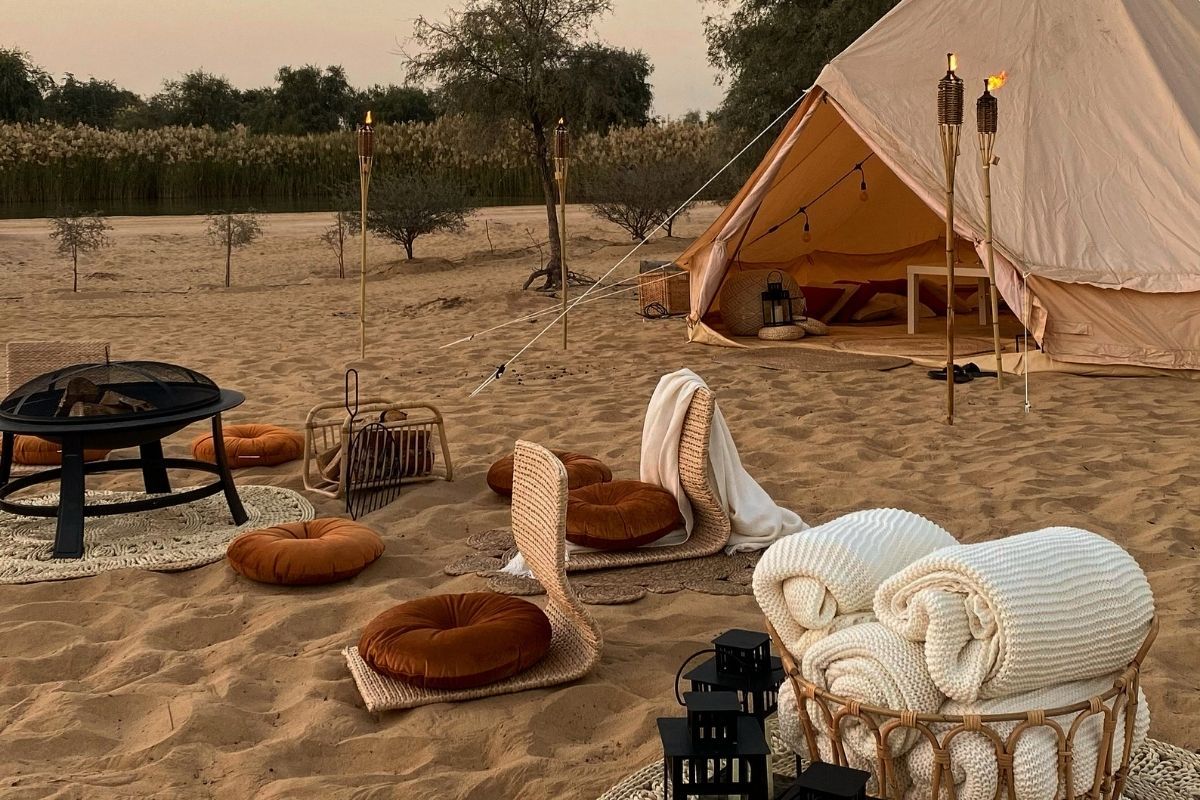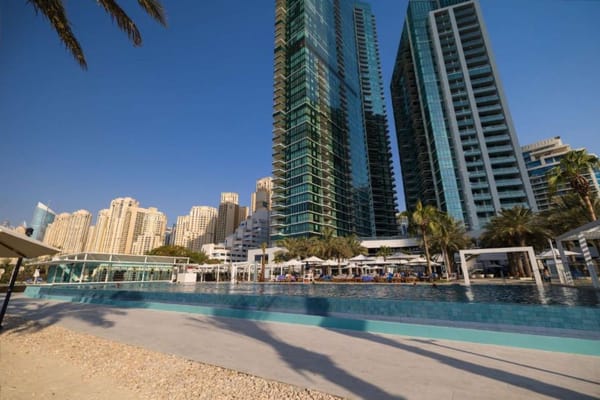As Dubai transitions into its enchanting winter season, the sweltering heat gives way to mild, pleasant temperatures, inviting residents and visitors alike to explore the great outdoors. This time of year not only enhances the beauty of the surrounding desert landscapes but also marks the beginning of the much-anticipated winter camping season.
From starlit nights by the campfire to the serene sounds of nature, the outskirts of Dubai offer the perfect backdrop for unforgettable camping experiences. Whether you’re an avid adventurer or a family looking for a weekend getaway, now is the ideal moment to pack your gear and immerse yourself in the captivating beauty of Dubai's natural surroundings. However, it's crucial to ensure that these experiences are sustainable to protect the environment and preserve the beauty of the region for future generations.
Here are some tips to make your camping experience in Dubai eco-friendly.
Choose Eco-Friendly Campsites
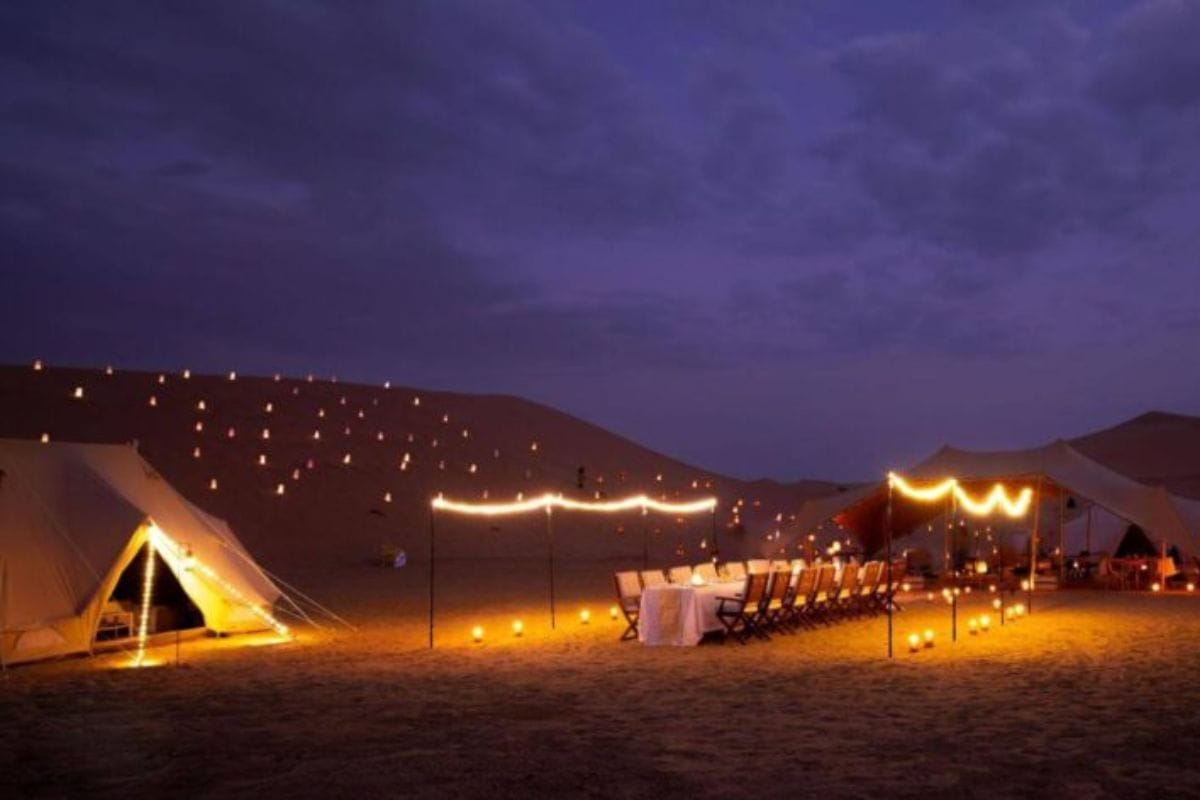
Eco-friendly campsites prioritize the preservation of natural resources and biodiversity while offering a unique outdoor experience. Look for campsites that adhere to sustainable practices, such as minimizing waste, conserving water, and utilizing renewable energy sources.
One notable example in Dubai is the Nara Desert Escape, located within the Dubai Desert Conservation Reserve. This site not only offers luxurious glamping options but is also committed to environmental sustainability, ensuring that guests enjoy the beauty of the desert while minimizing their ecological footprint.
Additionally, eco-friendly campsites often implement programs for wildlife conservation and encourage responsible behavior among campers. These sites typically provide educational resources about local ecosystems, allowing campers to engage with nature in a meaningful way. By choosing eco-friendly campsites, you not only enhance your camping experience but also contribute positively to the environment, promoting a culture of sustainability in the great outdoors.
Leave No Trace
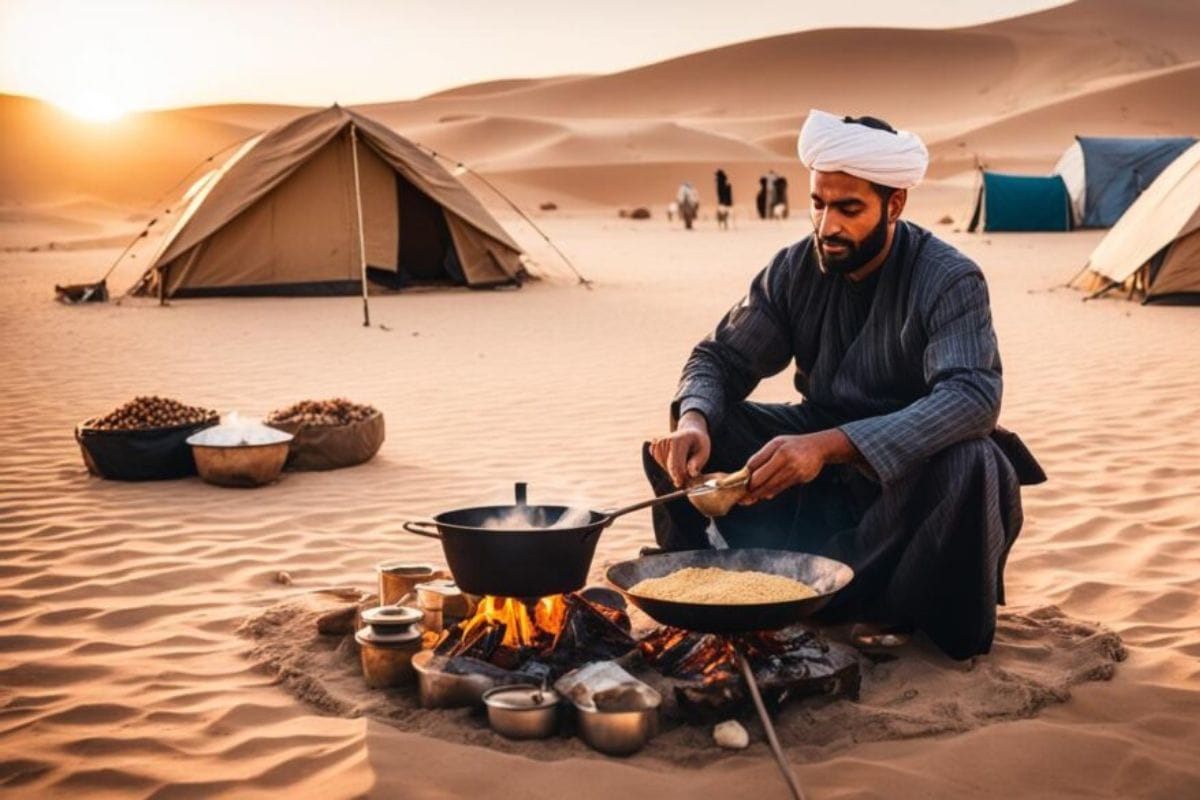
The principle of 'Leave No Trace' is essential for sustainable camping and involves minimizing your impact on the environment. This means that all campers should aim to leave natural areas as they found them, ensuring that future visitors can enjoy the same pristine surroundings. Here are key aspects to consider:
- Plan Ahead: Research your camping area and understand its regulations. Choose established campsites to reduce your footprint.
- Stay on Trails: When hiking or exploring, stick to marked paths to avoid trampling vegetation and disrupting wildlife habitats.
- Proper Waste Disposal: Pack out all trash, leftover food, and litter. This includes biodegradable items like fruit peels, which can attract wildlife. Always use designated waste bins if available.
- Leave Natural Objects: Do not pick plants, remove rocks, or disturb wildlife. Respecting local flora and fauna is crucial for maintaining ecological balance.
- Campfires: Use a portable stove for cooking instead of making a fire. If fires are permitted, use established fire rings and keep them small, ensuring they are fully extinguished afterward.
Use Sustainable Gear
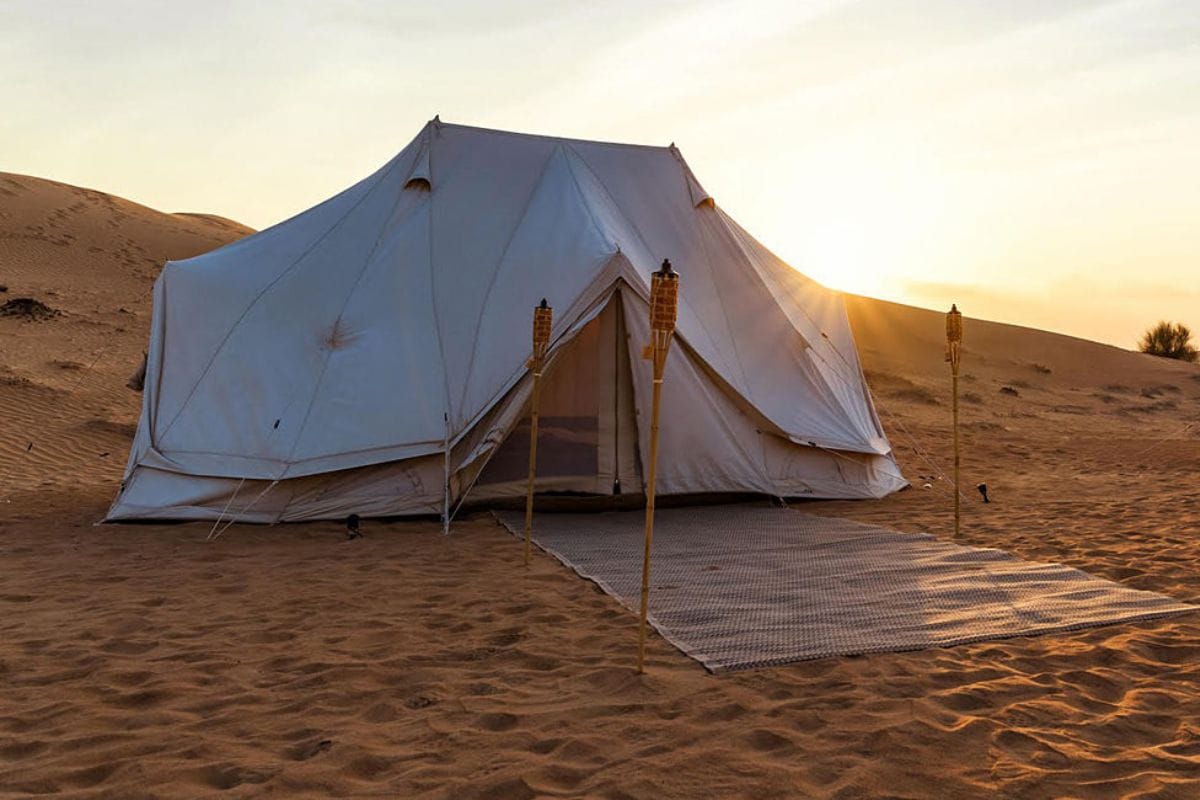
Start by choosing tents made from recycled materials or those that prioritize eco-friendly production methods. Brands that utilize sustainable fabrics reduce waste and resource consumption, contributing to a healthier planet.
When it comes to cooking, opt for portable stoves that run on renewable fuels, like biofuels, instead of traditional propane. This not only reduces your carbon footprint but also supports cleaner air in the delicate desert ecosystem. Additionally, use reusable utensils, plates, and cups to eliminate single-use plastics, which can take centuries to decompose. Invest in solar-powered lights and chargers to minimize reliance on disposable batteries and reduce energy consumption. These sustainable alternatives not only enhance your camping experience but also foster a connection with nature.
Finally, consider eco-friendly sleeping gear, such as biodegradable sleeping bags and sustainable mattresses. Supporting brands that prioritize sustainability ensures that your camping gear is not only functional but also contributes positively to the environment.
Respect Wildlife
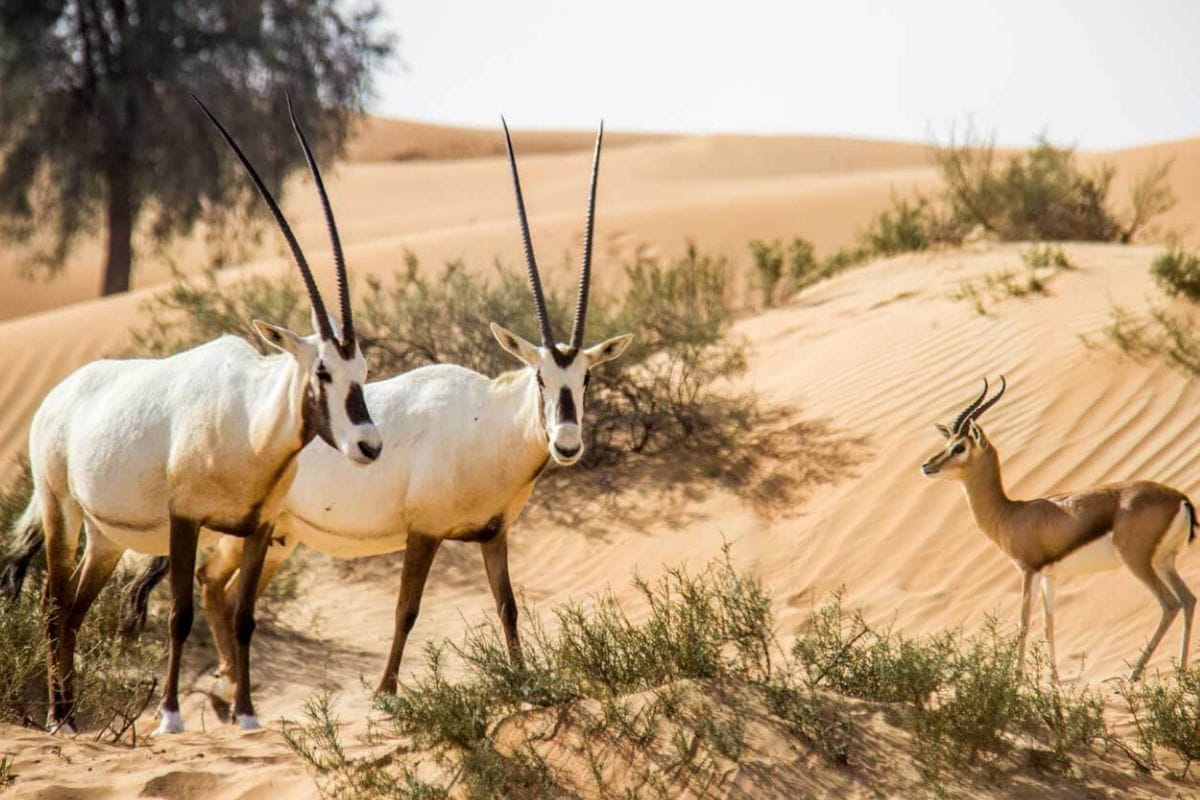
When camping in areas like the Al Marmoom Desert Conservation Reserve or near Al Qudra Lakes, which host unique flora and fauna, it's important to minimize human impact on the natural habitat. First, avoid feeding animals, as this disrupts their natural diet and can make them reliant on humans, altering their natural behaviors. Wild animals, including desert foxes, Arabian oryx, and various bird species, should be observed from a distance to prevent causing them stress or influencing their movements.
Additionally, refrain from disturbing plants or altering the landscape, as even small changes can impact the balance of the ecosystem. Loud noises and bright lights can frighten nocturnal animals and disrupt their night routines, so it's best to keep noise to a minimum, especially after sunset. Dispose of waste responsibly—litter left behind can harm wildlife if ingested or entangled.
Campfire Safety
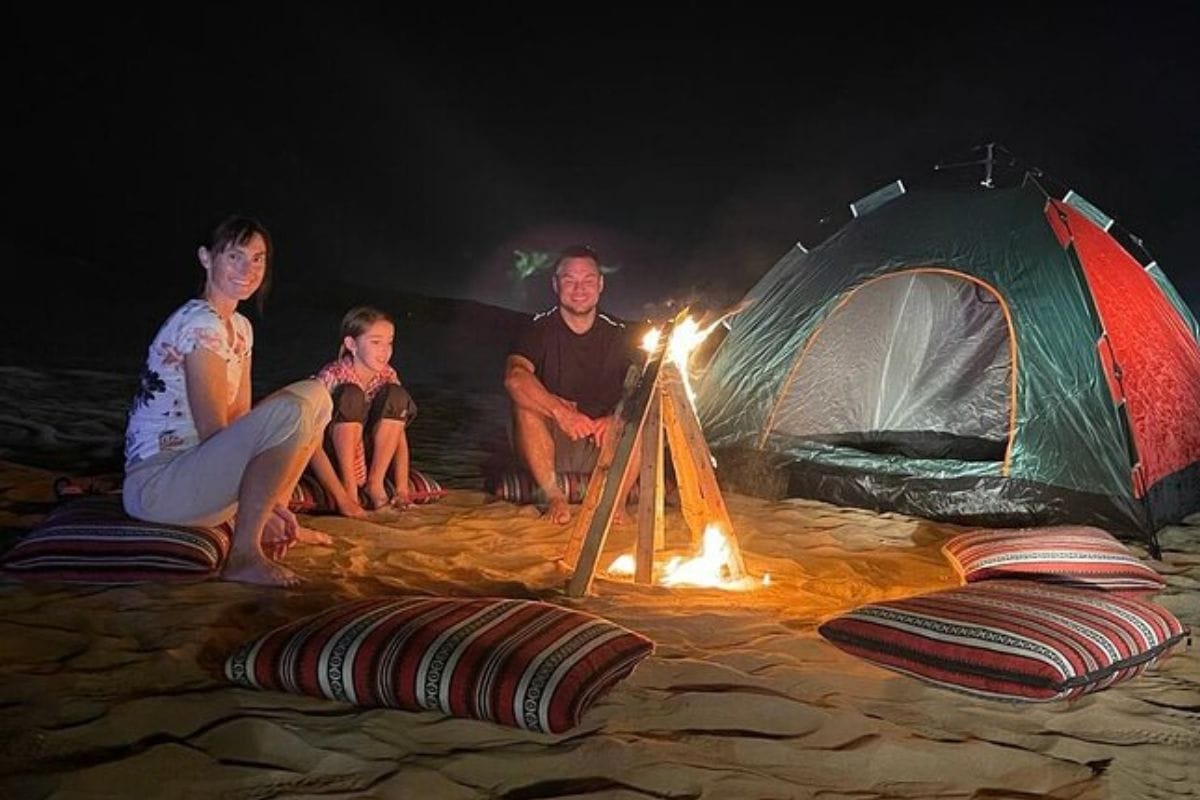
Given the dry, flammable conditions of the desert, a well-maintained campfire setup is essential to prevent unintended wildfires and protect the natural habitat. Begin by selecting an area free of vegetation, ideally within designated fire rings or pits if available. Clear a minimum of two meters around the fire to create a safety zone, removing any combustible materials like dry brush or twigs.
Building a small, contained fire is not only safer but also environmentally considerate, as it minimizes waste and burns fuel efficiently. Always keep a bucket of sand or water nearby for emergencies, and never leave the fire unattended. Winds in the desert can spread embers quickly, so ensure the fire is fully extinguished before sleeping or leaving the site.
To extinguish the fire, douse it with water or cover it thoroughly with sand, stirring to eliminate any remaining heat. Avoid leaving trash or leftover food in the fire pit, as these can emit toxic fumes and disrupt wildlife.
Plan Eco-Friendly Activities
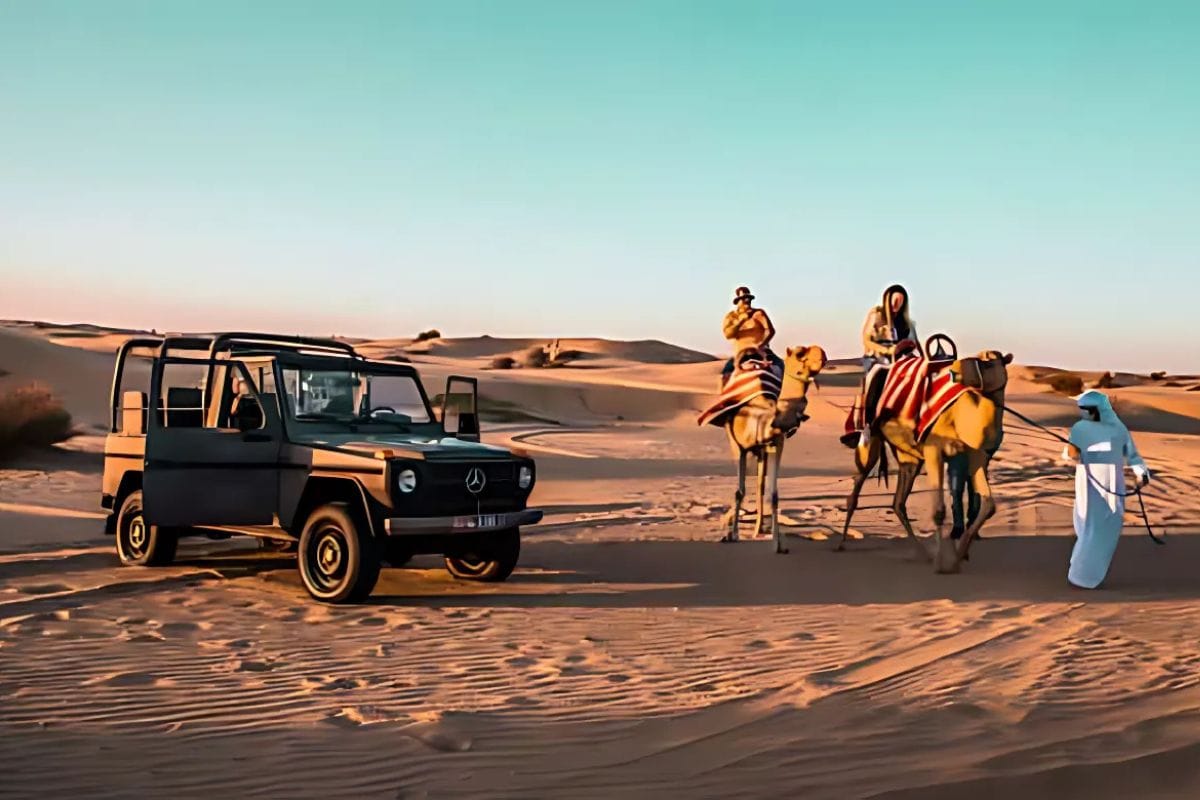
Planning eco-friendly activities during your Dubai camping experience not only helps reduce environmental impact but also enhances your connection with nature. Start by choosing low-impact outdoor activities that require minimal equipment, such as stargazing, birdwatching, or nature photography.
Dubai’s deserts and conservation reserves are ideal for observing native wildlife without disturbing their habitat—just be sure to maintain a safe distance to protect both animals and yourself. Another sustainable option is hiking along designated trails; this prevents damage to fragile ecosystems and minimizes the risk of erosion or habitat disturbance.
If you’re interested in more engaging activities, consider participating in a local eco-tour or desert clean-up. Dubai offers organized eco-tours where guides share insights into the local flora and fauna, desert ecology, and conservation efforts. These tours not only educate but also emphasize sustainable practices, leaving you with a deeper appreciation for Dubai’s natural landscapes.
Avoid using motorized vehicles like ATVs, which contribute to air pollution and can damage desert terrain. Instead, opt for sandboarding, which is a fun and eco-friendly way to enjoy the dunes. Remember, every small choice counts towards preserving Dubai’s stunning desert environment for future campers to enjoy.
Educate Others
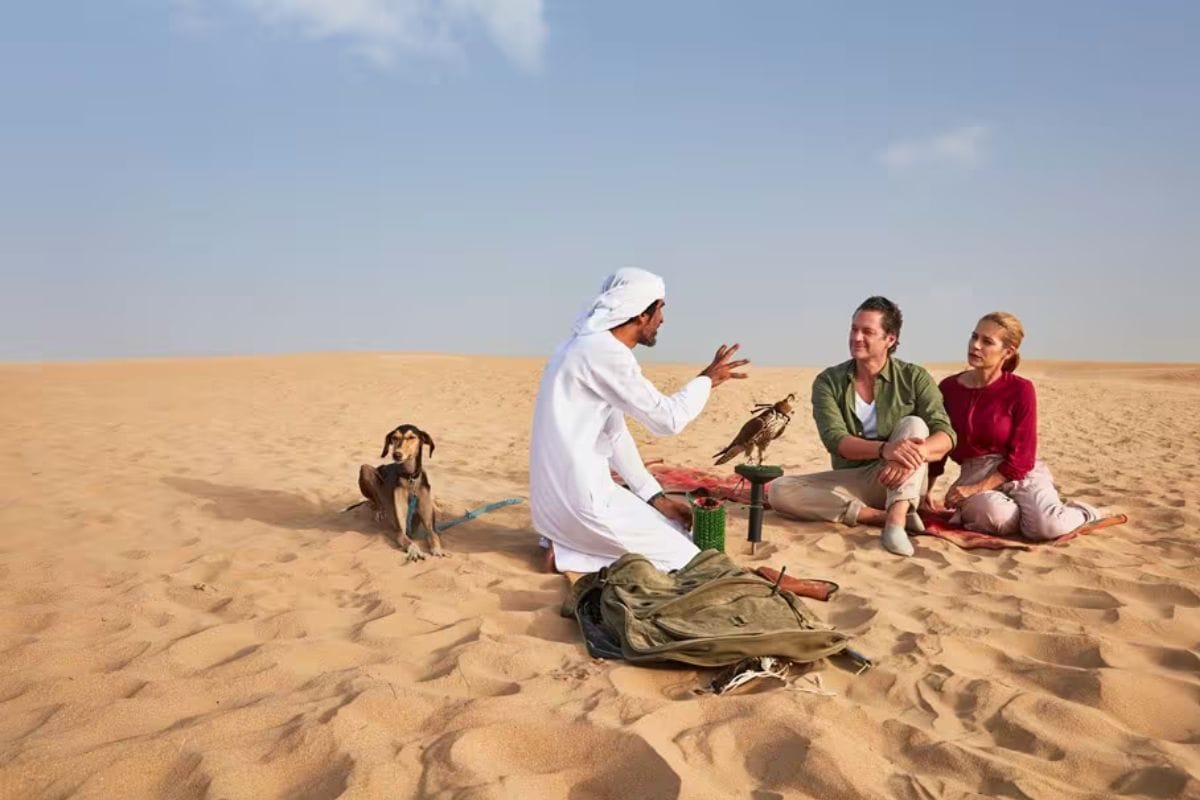
By sharing knowledge and leading by example, campers can inspire others to adopt eco-friendly practices that preserve the local ecosystem. Start by discussing the importance of minimizing waste, conserving water, and leaving campsites exactly as they were found. When camping with friends, family, or fellow travelers, show them how to properly dispose of trash, including separating recyclables and using biodegradable products when possible. Additionally, explain the negative effects of off-trail hiking and encourage them to stick to designated paths to protect Dubai’s delicate desert flora.
For a broader reach, consider creating informative content, such as blog posts or social media updates, that highlight sustainable camping tips specific to Dubai. Emphasize how actions like conserving resources, reducing single-use plastics, and respecting wildlife contribute to preserving these unique landscapes for future generations. By educating others, whether through direct interactions or digital platforms, campers can help build a community of environmentally-conscious individuals committed to protecting Dubai’s outdoor beauty and contributing to a sustainable camping culture in the region.
Also Read:
